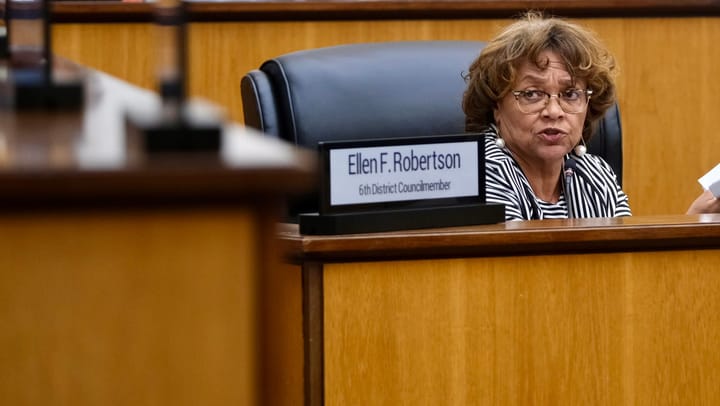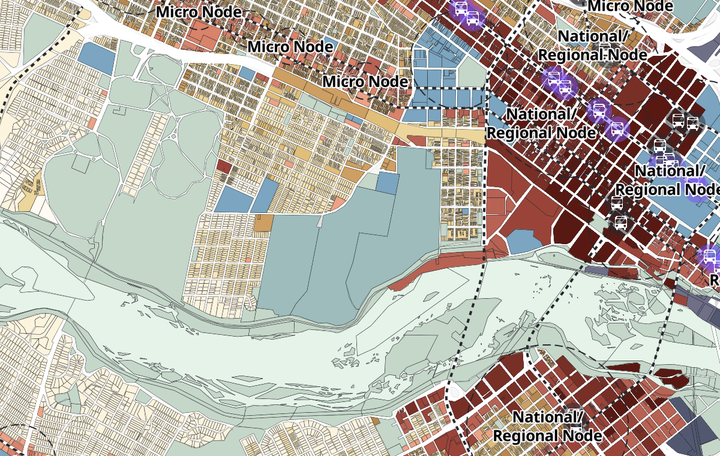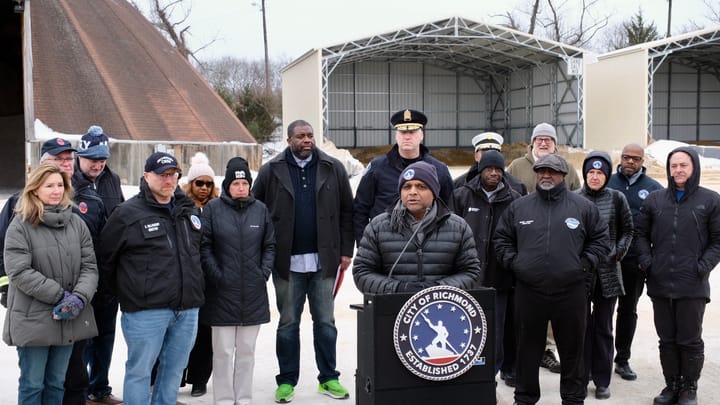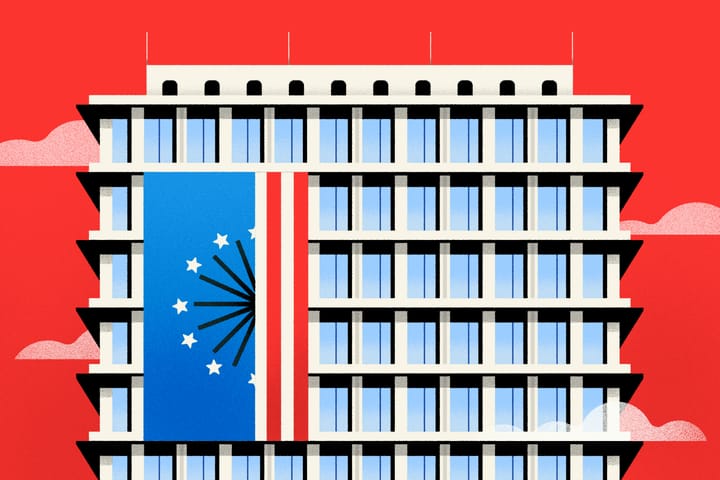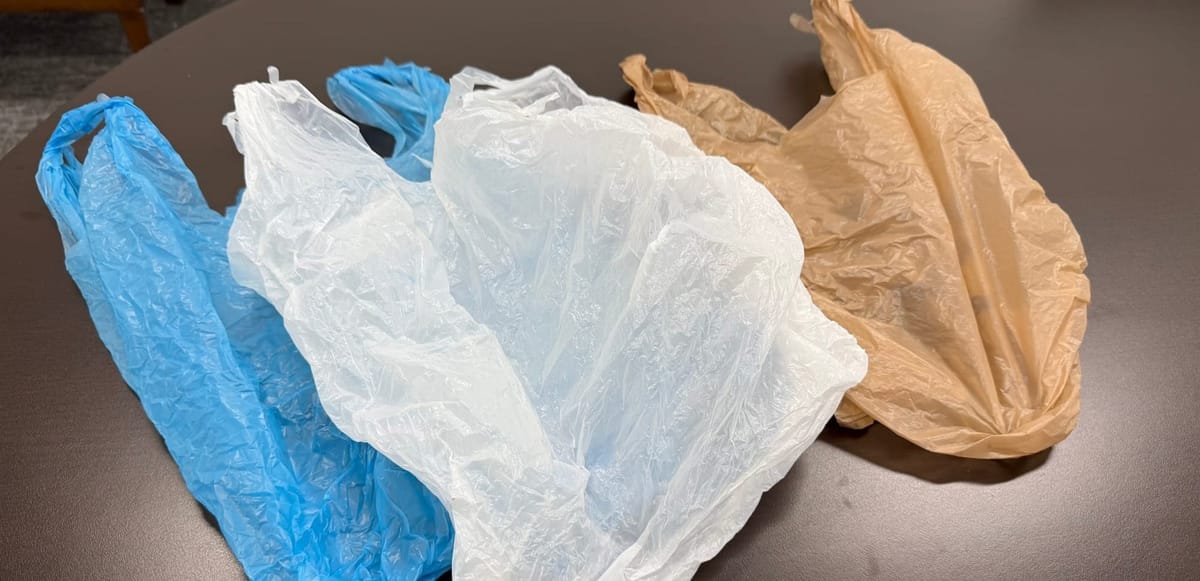
City Council approves 5-cent tax on plastic bags starting in 2026
Richmond is joining the list of Virginia localities seeking to be more environmentally friendly by imposing a tax on disposable plastic bags provided by grocery stores, convenience stores and pharmacies.
The 5-cent tax will take effect at the beginning of 2026, according to the legislation the City Council voted to approve Monday.
The proposal passed 6-2-1, with supporters praising it as a way to clean up the city and opponents raising concerns about how the new tax will impact low-income residents and elderly people on fixed incomes.
“The effects of the plastics to me is really staggering,” said Councilor Katherine Jordan (2nd District). “Especially the way it’s clogging up our drains and causing all types of larger problems for our infrastructure.”
In a policy memo laying out the rationale for the new tax, Richmond officials said reducing plastic pollution aligns with the city’s environmental goals.
“Reducing the number of disposable plastic bags in circulation throughout the city promises to lower the cost of litter collection and reduce the burden on the city’s solid waste disposal and recycling programs, as well as foster cleaner, healthier and more beautiful neighborhoods, green spaces and waterways,” the memo said.
Because the city estimates around 8 million plastic bags are distributed in Richmond each year, the new tax is expected to generate $400,000 annually. The tax will technically be administered by the Virginia Department of Taxation, which will distribute the resulting revenue to the city.
If the policy works as intended and plastic bag usage drops, officials said, the revenue would probably shrink to around $100,000 to $150,000 per year.
The revenue will be split between retailers and the city. Four cents per bag will go to the city, while one cent will go to retailers to help lighten the burden of having a new tax to collect.
Councilors Ellen Robertson (6th District) and Reva Trammell (8th District) voted against the tax. Councilor Nicole Jones (9th District) abstained from the vote.
Robertson said her constituents lack access to a grocery store, meaning many are forced to make frequent trips to convenience stores to get essentials. She also said she worried people would simply learn to buy their groceries in neighboring counties that don’t have bag taxes.
“Who’s going to pay the most are going to be the communities we’ve neglected all along that don’t have a grocery store,” Robertson said. “I see it as a regressive tax.”
Councilor Andrew Breton (1st District) said he too worries about flat taxes hitting low-income people harder, but still supported the policy because he sees it as “a necessary way to change behavior.”
“Flat taxes can have outsized inequitable impact,” Breton said. “Then again, pollution can have an inequitable impact as well.”
In 2020, the Virginia General Assembly passed legislation empowering local governments to have plastic bag taxes. Richmond is the latest of nearly a dozen localities to approve such a tax.
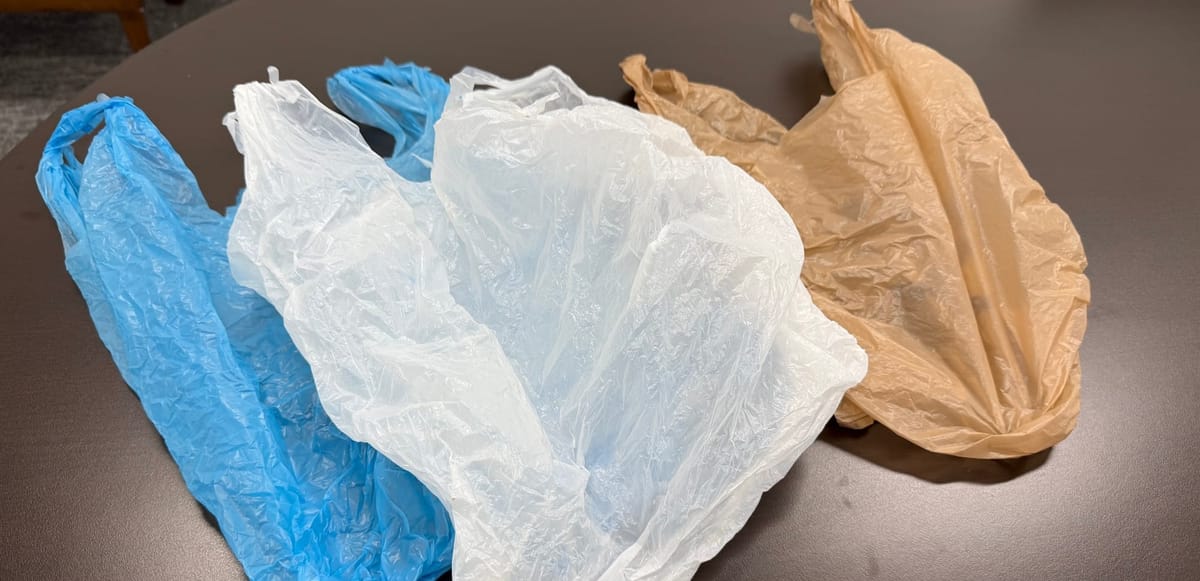
Laura Thomas, the director of the city’s Office of Sustainability, told City Council members last month that officials will use the six months before the tax takes effect to conduct outreach to businesses and residents who will be impacted by it. That outreach, Thomas said, will be specifically targeted to smaller businesses, because big-box stores like Walmart and Target are already collecting bag taxes in other jurisdictions.
“We’re really going to be focusing on those smaller mom-and-pop shops and reaching out to them,” Thomas said.
The tax will not apply to reusable plastic bags, bags used for dry cleaning or prescription drugs and bags used to protect perishable food items like produce and meat. It also will not apply to packages of bags bought for trash, pet waste and leaf removal purposes.
Under state law, revenue from plastic bag taxes can be used for environmental cleanup, anti-pollution and anti-litter initiatives, education programs focused on protecting the environment and providing reusable bags to residents who receive benefits through the Supplemental Nutrition Assistance Program or Women, Infants and Children Program.
Thomas told the council on Monday that the city will use some of its own general funds to provide reusable bags to people who don’t qualify for the two assistance programs.
“Well, why don’t we just spend the money and buy the bags and forget about the 5-cent tax?” Robertson said.
Councilor Stephanie Lynch (5th District) said she used to be a skeptic of plastic bag taxes. But after seeing enough bags in and around the James River and going on enough neighborhood cleanups, she said, her position evolved.
“You realize that, man, we are not doing very well as a city on being clean and taking care of our environment,” Lynch said.
A fight over the inspector general
The council also voted Monday to appoint Foster Curtiss as the city’s interim inspector general, but not before Trammell and Council President Cynthia Newbille had a public fight over the removal of former inspector general Jim Osuna.
“You did wrong in what you did to the IG,” Trammell told Newbille. “One hundred percent wrong.”
Trammell also accused Newbille of moving to fire Osuna on a day when she knew Trammell would be absent to attend a family event.
Newbille told Trammell she did “nothing individually.”
“There are nine members of this body,” Newbille said.
The Richmonder is powered by your donations. For just $9.99 a month, you can join the 1,000+ donors who are keeping quality local journalism alive in Richmond.
The inspector general — who acts as a watchdog against waste, fraud and abuse in city government — is one of the few city officials who reports to the City Council instead of the mayoral administration.
Curtiss already worked in the inspector general’s office as investigations manager. Newbille said he will receive the same salary that the inspector general normally would.
Newbille denied Trammell’s insinuation that she had tried to prevent Osuna from investigating some City Hall matters.
“No matter what you say, I did not do that,” Newbille told Trammell. “Ever.”
Contact Reporter Graham Moomaw at gmoomaw@richmonder.org



